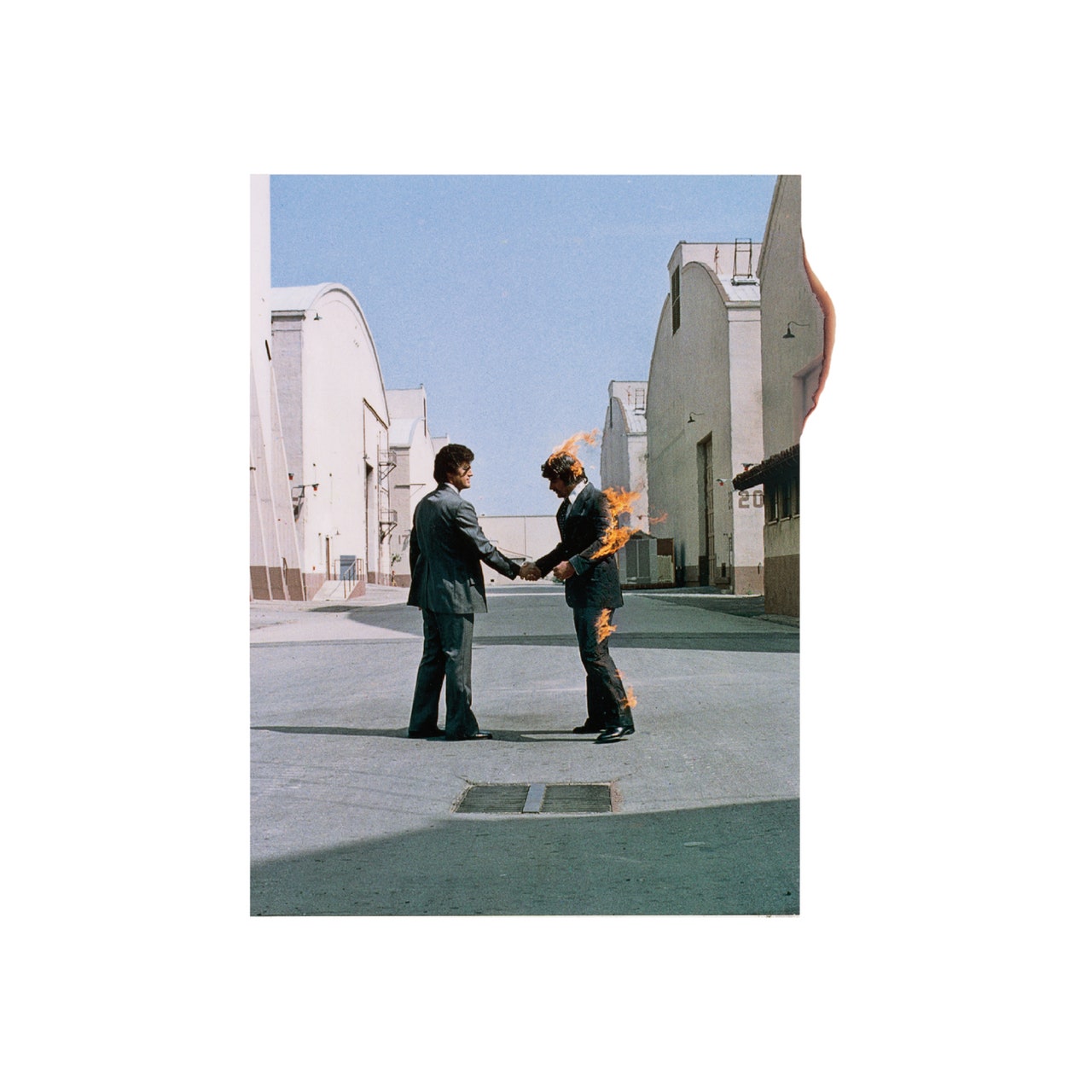Roger Waters heard what everyone in Genesis was saying about him. In a 1975 interview around the release of Wish You Were Here, the Pink Floyd bassist and vocalist responded to his peers’ suggestion that they were aiming for real art, while Pink Floyd, whose records were now selling in the millions, had grown more interested in appealing to the lowest common denominator and fading into the background.
While the word “diplomatic” is rarely used to describe Waters, he managed to address this criticism with a distinct lack of rancor. Here’s what he posits: Unlikely scenario, but, if someday Genesis—a whimsical prog band who just lost their visionary frontman and who would, within a year, release an album partially inspired by the novels of Emily Brontë—someday achieve the mainstream success enjoyed by Pink Floyd—a band so popular that characterizing them as “prog” feels somewhat minimizing, like calling Star Wars a “sci-fi” film—then there’s a good chance that they, too, would loosen their distinctions between high and low art.
Then in his early 30s, Waters was testing a theory about how rock stars might age gracefully in this miserable industry. It had been less than a decade since Pink Floyd’s artful and inventive debut, 1967’s The Piper at the Gates of Dawn, but they had already endured enough transformations, upended so many expectations, and achieved so many artistic highs as to feel like their best work could well be behind them. Looking back on the massive success of 1973’s The Dark Side of the Moon—a commercial and creative breakthrough that changed their lives forever—he came to understand what makes art connect with the masses. For better or worse, he decided, people were attracted to the chase: the ambition that drives us to even believe we could make something like Dark Side of the Moon. Once you do it, the story is over. “Wish You Were Here,” he explains, “came about by us going on in spite of the fact we’d finished.”
At first, the creative process was just as labored as he makes it sound. The band—Waters, David Gilmour on guitar and vocals, Richard Wright on keys, Nick Mason on drums—was lost. Distracted. New songs emerged but they lacked any unifying theme. When they tested new material on the road, music journalists did what we sometimes do, which is to turn our backs on good bands when they get too popular, relitigate them based on their fame, and suggest the edge is gone—if there ever was an edge!—and, at the very least, the thing that once felt like magic has started to become stale. “The Floyd in fact seem so incredibly tired and seemingly bereft of true creative ideas,” Nick Kent wrote in a 1974 issue of NME, “one wonders if they really care about their music anymore.”

